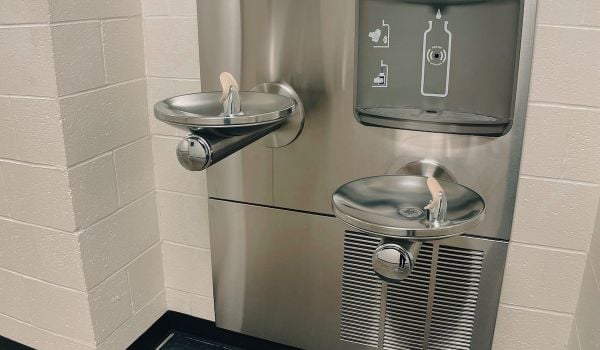This is the first installment of the new column “The Tipping Point,” in which Hamida Kinge comments on environmental issues. Hamida Kinge is currently a Metcalf Institute Fellow and writes regularly for Next American City about the environment.
Three months ago, in the eleventh hour of the Bush Administration, the Environmental Protection Agency’s Criminal Investigation Division publicized its first “most wanted” list of environmental fugitives on a new page on its website. The site presents 25 FBI-style mugshot images and lists the offenses of the fugitives. According to the site, the alleged violations include: smuggling of ozone-depleting substances, illegally disposing of hazardous waste, discharging pollutants into the air and water, laundering money and making criminally false statements. “Some fugitives may be armed and dangerous,” asserts the site, and so the EPA warns the public against “trying to apprehend them.” Since that announcement, they have caught two suspects; another surrendered.
While the move by the EPA to publicize its pursuit of individuals was a noble one, it was certainly not the most urgent of agendas to publicize. Instead, the list is an unfortunate metaphor for how the Bush Administration weakened and misdirected the role of the EPA as a regulator of industry through budget cuts and political pressure.
We’ve seen the failure of similar government campaigns that attack the symptoms of societal problems. America’s War on Crime has been a feeble attempt to curb crime in cities in the same way that the War on Terror, which has grown exponentially in breadth since 9/11, has thus far been ineffectual in creating a collective sense of safety in the West. It may be said that when government attacks symptoms, little or no progress generally results. And much like the War on Crime, the fugitives on EPA’s list are an example of government attacking the symptoms rather than the most glaringly obvious sources of major environmental crimes. (The coal industry is a great example.)
David Allen Phillips was on the EPA’s fugitive list. But he was captured in 2008. Back in 2002, he was sentenced to three months home confinement and five years probation for violations of the Clean Water Act, and for money laundering and wire fraud. The environmental crime described by the site is that Phillips’ “property and subdivision development caused significant impacts to wetland areas and a water of the U.S. known as Fred Burr Creek in Phillipsburg, Montana.” In 2003 Phillips violated probation and was consequently sentenced to 33 months in prison. He escaped in 2004 and was caught in 2008.
But with coal and oil corporations violating Clean Air and Clean Water Act regulations set by the EPA, why is the agency not publicizing the wanton practices of corporations, warning citizens of how “dangerous” they are to human health and the health of the planet? It seems bizarre and almost laughable that small-time individuals were named the agency’s “most wanted” for doing things like illegally importing Alfa Romeo cars, while energy and fuel corporations and chemical refineries remain the largest contributors to air, water and soil pollution and, ultimately, climate change. For example, coal-fired power plants are the biggest contributors to CO2 emissions in the United States – a head-swiveling 45 percent to be exact.
If hard scientific evidence indicates that climate change is proliferating at an alarming rate, and that the biggest contributors are often the most sizable industrial corporations, is the fugitive hunt, then, simply another unfortunate example of the poor, working-class offender getting the harshest punishment, while the rich, corporate environmental offender will only ever be slapped with fines and lawsuits? The agency’s fugitives list sends the wrong message to industrial offenders and to the public: that the EPA may fine or sue corporations, but that is the worst that will happen. Prison time for the most heinous of environmental crimes will not be the result. Corporations can buy their way out with fines, which as a general practice they expect and earmark money for.
It is entirely true that the EPA’s job is a gargantuan one; just regulating air, for example, is a Herculean task. And not only does it cost money to regulate and research (again, its funds dwindled under Bush), but those two things are extremely complex in their own right. Nevertheless, they are precisely why the agency exists. Despite the underfunding and influence of the last administration, there is optimism that with President Obama at the White House and Lisa Jackson at the helm of the EPA, the agency will be recharged to ably undertake the tasks of its original mission. The return of science is already evident, and there is also evidence that the same is going to be the case with the environment. And, at the end of February, the president proposed a budget of $10.5 billion for the EPA. That makes it the largest budget in the agency’s 39-year tenure.

Hamida Kinge has written about everything from food security to ocean acidification to luxury cell phones. She was a 2009 fellow of the Scripps Howard Institute on the Environment and a 2008/09 reporting fellow of the Metcalf Institute for Marine & Environmental Reporting. She has contributed to Next American City, Grist, Philadelphia City Paper and U.R.B. domestically as well as Europe-based magazines Essential Macau and Straight No Chaser. For the past year, she has been teaching English as a foreign language to international students and business professionals. Hamida has also been a volunteer English tutor for the International Center in New York.









